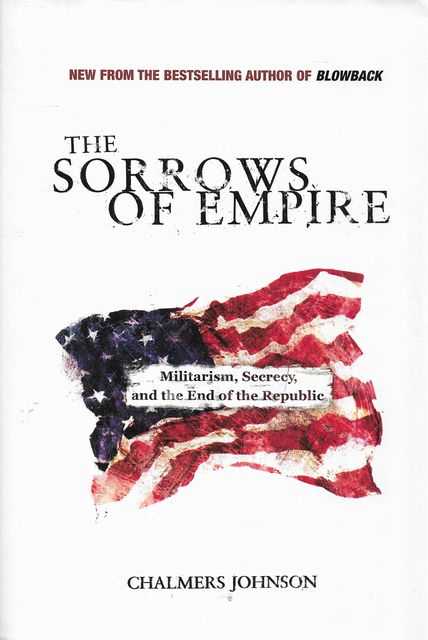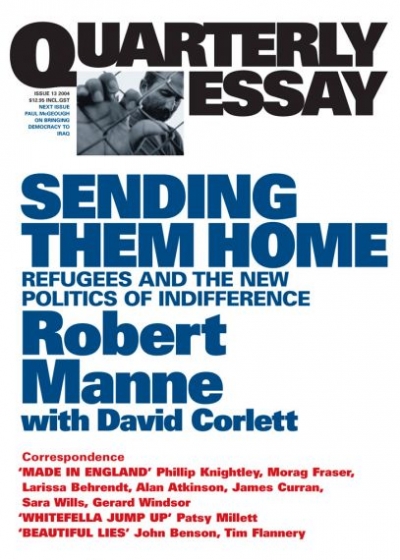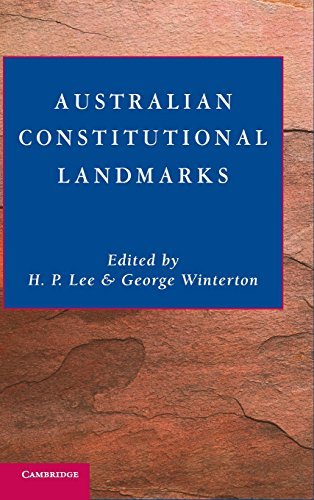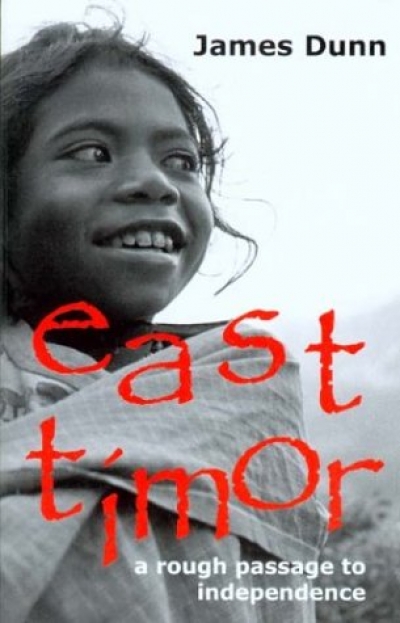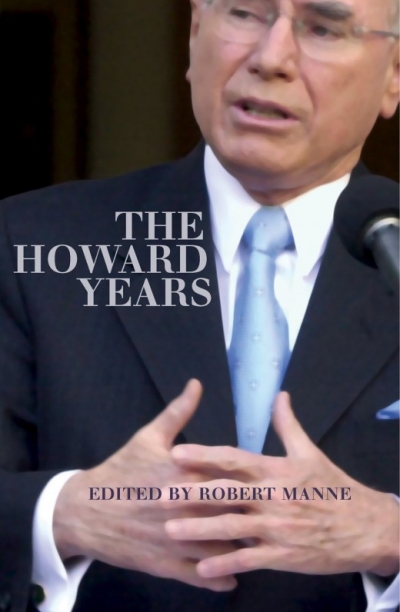Politics
Commissioned by the Liberal Party thinktank, the Menzies Research Centre, this book has as its subject the ‘crisis’ in education. It opens with an endorsement by Malcolm Turnbull and closes with a Glossary of Edubabble, the entries of which include: progressive education, fuzzy maths, political correctness, black armband, whole language and phonics. If Turnbull’s enthusiastic foreword and the title of the glossary are not enough to suggest the conservative politics of the book, the cover is a dead give-away. The words Why Our Schools Are Failing are written as if in chalk on a blackboard, wistfully signifying a time in the past when teachers stood at the front of the class and transmitted knowledge in a neat cursive script using a dependable technology.
... (read more)It is hard to avoid the assessment that the most visible product to date of the war on terrorism has been nothing much more, or less, than more war and more terror. The unhappy reality since September 11 seems to be that all our major cities, and concentrations of Westerners anywhere, are as vulnerable as ever; the capacity of terrorist actors to do harm is as great as ever; their motivations are as great as ever; their identity is as elusive as ever; international cooperation is as fragile as ever; and international policy priorities are as misplaced as ever.
In Iraq, where the terrorist connection was the least plausible of all the reasons for going to war, terrorist violence has now become the most harrowing of all its consequences. The significance of Richard Clarke’s evidence to the September 11 Commission is not what the former anti-terrorism chief had to say, with all the wisdom that hindsight confers, about the failure of either Republican or Democrat administrations to take more effective action before September 11; rather, it is about the decision after September 11 to attack Iraq, a country that had about as much to do with it as Mexico, creating in the process the most expensive recruitment campaign for Islamist extremism ever launched.
... (read more)Lam Khi Try is a Cambodian journalist who wrote articles exposing corruption, illegal logging and political assassinations by the Cambodian government. He received a threatening letter from the Cambodian prime minister and death threats from anonymous callers. After the director at Lam’s newspaper died in suspicious circumstances, the staff became frightened and the newspaper was closed. Lam was followed constantly, and he and his family went into hiding. Later, he fled Cambodia and came to Australia for refuge, followed by his wife Nary. They left their children in the care of relatives, with the intention of bringing them safely to Australia.
... (read more)The Sorrows of Empire: Militarism, secrecy, and the end of the republic by Chalmers Johnson
Chalmers Johnson, who began his career in the US Navy and became a consultant to the CIA, is one of the most respected American experts on East Asia and international affairs. Over the past few years, he has emerged as a significant academic critic of the Bush administration, and what he sees as a dangerously reckless escalation of US imperialism and militarism.
... (read more)Sending Them Home: Refugees and the new politics of indifference (Quarterly Essay 13) by Robert Manne (with David Corlett)
Some time before the sun set on the British empire, ‘British justice’ took on an ironic meaning. In the colonies, we knew it was a charade, like that doled out to ‘Breaker’ Morant during the Boer War. The dice are loaded in favour of a prosecution that nevertheless insists on carrying out its cold-blooded retribution in an apparently value-free legalese, thus preserving the self-righteousness of the empire and tormenting the condemned. Yet, as Robert Manne and David Corlett make clear in this latest Quarterly Essay, the larrikin land of Australia can now, through its treatment of asylum seekers, fairly be said to lead the world in the practice of traditional British justice.
... (read more)Australian Constitutional Landmarks by H.P. Lee and George Winterton
The centenary of the first sitting of the High Court of Australia was celebrated in the same courtroom in Melbourne in October 2003. There followed a conference in Canberra reviewing the decisions of the Court over the course of a century. The papers of that conference will shortly be published for a legal audience.
In advance of that book, CUP has published sixteen essays to give a more general audience an idea of the role the High Court has performed in the leading issues in which it has been involved. The writers are assigned important decisions or major themes. They explain the background. They describe proceedings in the High Court and (whilst it lasted) the Privy Council. They put their subjects in context and evaluate their significance in terms accessible to an informed lay reader. This book contains plenty of new insights that combine to make it a commemorative volume, but without many of the defects normal in that genre.
... (read more)Asiye Guzel Zeybek – a Turkish journalist, editor and author of Rape under Torture (1999) and Our Cakir: The Life of a Revolutionary (2001) – was arrested on 27 February 1997, together with nineteen other colleagues. Zeybek, now thirty-three years old, is an executive board member of the Istanbul Branch of the Progressive Journalists’ Association, and also editor-in-chief of Atilin. She was specifically accused under Article 168 of the Turkish Penal Code, and subsequently convicted for her association with the now banned Marxist-Leninist Communist Party. Zeybek’s legal counsel staunchly rebutted the prosecutor’s allegations of her involvement in any violence.
... (read more)The careful media management accompanying the Australian National Archive’s release in January 2004 of cabinet papers covering the first year in office of the Whitlam government underlined the interest of the ageing ex-prime minister and his supporters in safeguarding his status as an Australian icon. It was a success: most analysts agreed that the papers showed that in 1973 the newly elected Labor government performed with exceptional dynamism and transparency.
... (read more)Do John and Janette choke on their cereal at the name of Robert Manne as they breakfast in their harbourside home-away-from-home? They have every reason to do so. No single individual has provided so comprehensive a challenge to Howard and his ideological claque in the culture wars now raging in this nation. Manne was early to denounce Howard: for his soft-shoe shuffle with Pauline Hanson; for the inhumanity of the government’s approach to the boat people; for the shallow basis for our participation in the Second Iraq War. In the wider war, he wrote a savage critique of the right-wing cognoscenti who assailed Bringing Them Home, and he has rallied the troops to repel Keith Windschuttle’s revisionist history of black–white confrontation in nineteenth-century Australia. Now he has edited this selection of essays, which provides a critical survey of the Howard government across a wide range of its policies.
... (read more)Keith Murdoch: Founder of a Media Empire by Ronald M. Younger
In the bitter federal election of 1917, Labor’s member for the marginal seat of Corio fell victim to dirty tricks. As a quartermaster sergeant in the AIF’s 3rd Division, A.T. Ozanne shouldn’t have been opposed. But Prime Minister Billy Hughes became electorally desperate, and he published a cable from General Monash, the division’s commander, which portrayed Ozanne as a deserter. Ozanne was indeed not in France with the AIF volunteers, but it was because he had been given medical leave, quite authentically. Monash was careless with the facts, and perhaps misled by officers who disliked Ozanne. Hughes’s ruthless use of the cable destroyed Ozanne’s political career.
... (read more)

